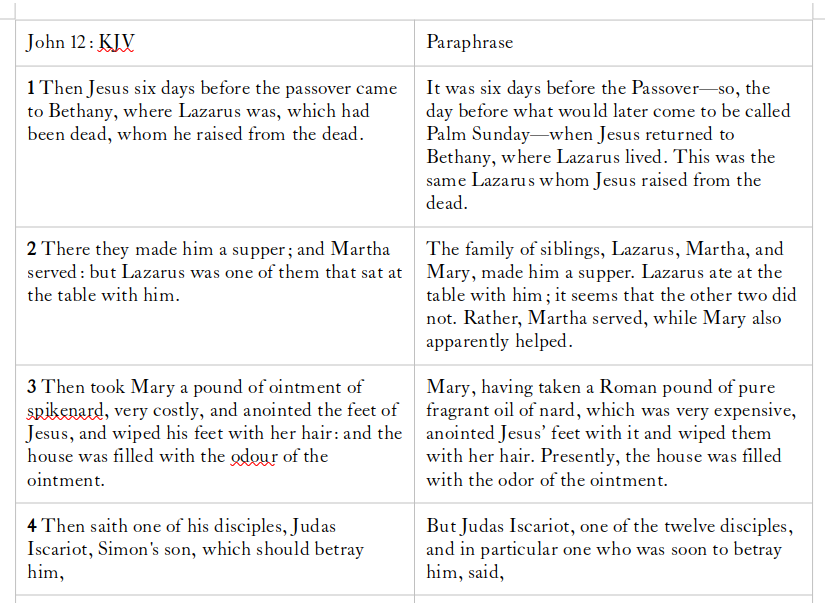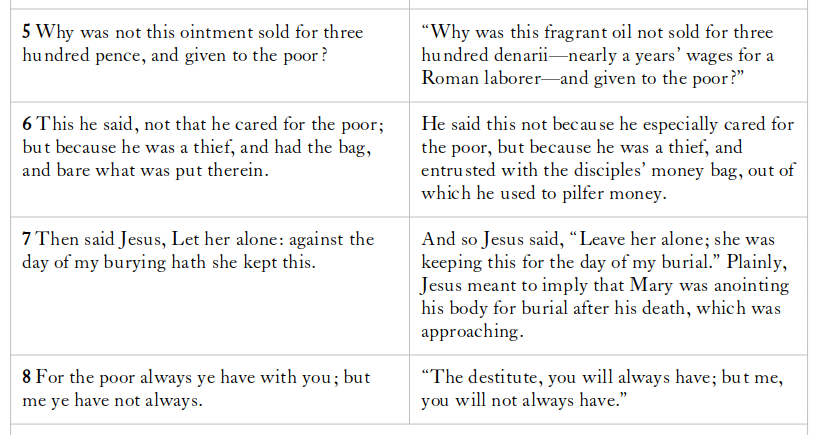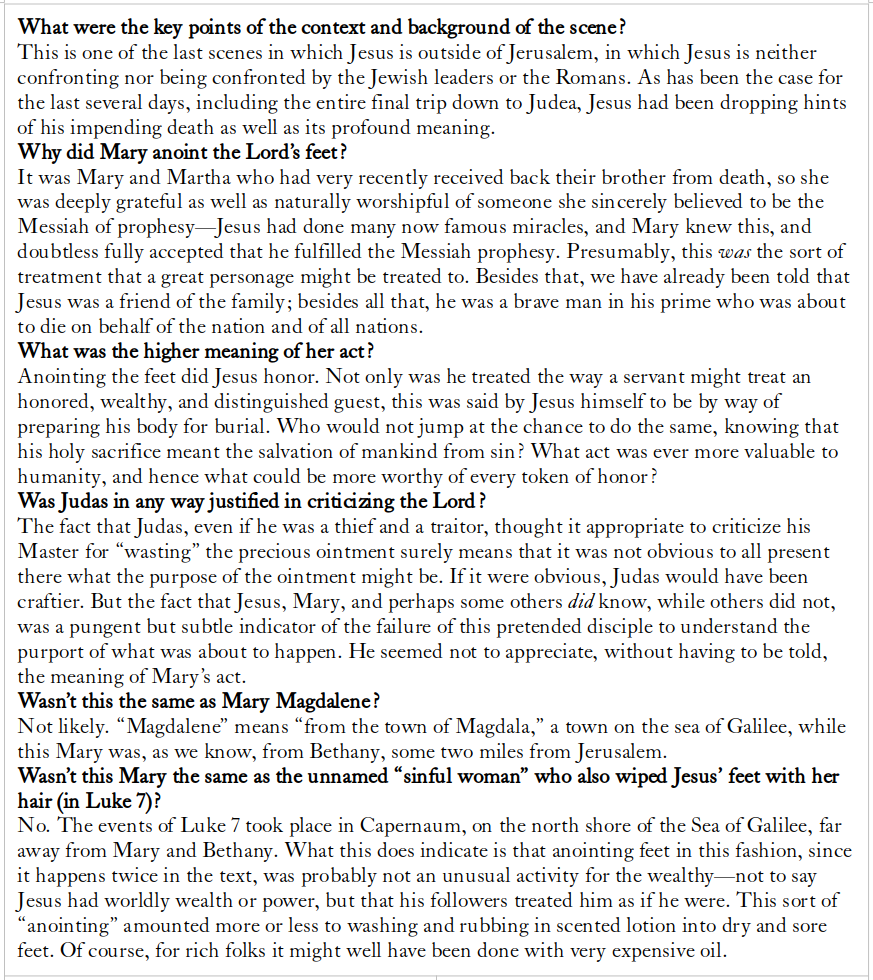I almost wrote: “a crazy idea for theological self-education”

Let me describe what I am doing, and how I might want to go on doing it in the future. This description has two parts: (1) the method I propose to use for studying the Bible, and (2) the method I propose to use for getting an “independent” degree, if I can possibly interest some qualified theologians.
How I will study the Bible, again
Beginning one year ago (December, 2019) I started reading the Bible cover-to-cover. I did so in 100 days, still finding time to look up answers to questions with the help of study Bibles and commentaries and suchlike. When I finished, I immediately began re-reading it with a little online study group, this time following an OT-once, NT-twice, all-in-one-year plan. I am of course doing more in-depth background study. Now that this pass through is about 80% done, and I am thinking about what I will do next.
One thing that is clear to me is that I will continue to study the Bible, although I will do so more slowly and carefully next time through (beginning in March). I have toyed with various ideas for concocting a Bible commentary of some sort, and I have all but decided on one particular approach. Namely, I will be answering a limited number of questions about the text, limited particularly by the amount of time I want to spend on each chapter. Maybe I will also prepare a little paraphrase, but maybe not. Here is the result of an experiment demonstrating this idea:



As a grad student, I made myself quite adept (in the opinion of my examiners) in my ability to explain the philosophy of David Hume and Thomas Reid, simply by going through the text and answering every hard question I could think to ask about the text. So I would like to do something similar with regard to the Bible.
If I get through the Bible in three years—again, OT once, NT twice—then I can spend only so much time on each chapter. On the other hand, reading more slowly, I will have time available to do research and writing that, reading faster, I would have to spend in just reading. This still might be too aggressive: it’s about two chapters per weekday. On the other hand, that includes many short chapters, and it is actually only 52 verses per day, and that is assuming I get get weekends and two full weeks off every year. Besides, when I go through the NT the second time, I will be revising and adding to what I have already written.
I have thought about studying theology more systematically, which makes some sense, because not only am I a philosopher and have strong interests in theological questions, but I am also 180 pages through writing a book summing up my versions of (mostly philosophical) arguments for the existence of God. I have been chipping away at it a page here, a page there, a few pages per week for the last nine months or so. It has come steadily. (I have a growing mailing list of theologians and theology students who have offered to give me comments…although few have done so so far. Let me know if you are into theology and want to join the list. I will send new manuscript versions as I make them.)
Beyond work on that, perhaps I will somehow incorporate theological study into my reading of the Bible, but the Bible will remain my main focus. You see, whenever I crack open a book of serious theology, I read a page or two and immediately ask myself, “Why would I read this instead of the Bible, when I have not determined how I would answer many interpretative questions about the Bible itself? I mean, why go to all this trouble of struggling with the answers to specific questions about the meaning of the text (because that really is what theology is about, in my opinion) without first fully acquainting myself with the text? Would that not be much more efficient?”
On the other hand, I can see perhaps incrementally developing answers to a limited number of theological questions by reference to, and in the context of, relevant passages in the Bible. So I might have a question about Original Sin, and I might add new bits to the answer in light first of Genesis 3, and then later in light of texts from Paul. After all, a lot of the sort of questions I am inclined to ask about the text are questions concerning apologetics and theology.
But in any case, I will certainly be finishing this book about the arguments for the existence of God, and to do so I will want to review a fair bit of philosophical theology—the same sort of thing I used to teach to undergraduates in a philosophy of religion course at Ohio State, although now I would be reading at a higher level. I have actually started doing so already.
A theology degree by examination?
Since I am actually wrapping up my first draft of this book manuscript, called God Exists, I started hunting around for reviewers, theology types who were interested in discussing the issues and giving feedback. As I was thinking about this, though, it occurred to me that what I really need is some expert guidance. “Perhaps I might want to get a theology degree,” I thought. And then it occurred to me that I sure do not want to go back to some modern, compromised, dysfunctional institution (which thinks it is doing absolutely fine). I mean, I don’t have to. I don’t need the degree; I want the learning. Still, wouldn’t the degree be nice to have? In any case what I need is the help that would typically go with the degree.
So then I thought: “What about my old interest in degrees by examination?”
My latest thinking on that is: there would be nothing more inherently valuable about a degree from an institution like Harvard than a degree that were endorsed and “granted” by three Harvard faculty members. Traditional employers might respect the official degree, but what if I don’t care about traditional employers?
Why not simply do the study for a particular degree in this way: you develop a portfolio (of some sort) with occasional help from experts, and then sit for a written and oral exam, and portfolio and thesis evaluation, by a panel of three more experts? Then when you say, “Oh, sure, I have an M.Div. But it is an Independent M.Div., or I.M.Div., granted by Jones, Smith, and Brown.” Assuming those three are well-known, then why shouldn’t this be respected as the equivalent of a traditional M.Div. that a thesis committee with those three on it would approve? Similar committees are responsible for determining all advancement in the context of big, bureaucratic educational institutions.
This might be revolutionary; but at this point, it is a revolution that I think needs to happen. We need to make the degree-granting process independent of giant, expensive, and increasingly totalitarian universities.
Of course, I might have trouble finding even one person who is willing to put his own reputation on the line by “granting” an “independent degree” to an independent scholar, or “recognizing” such. But I would be willing to serve as the student in such an experiment.
Any interested and qualified Bible scholars and theologians out there? Want to be on my committee? We would potentially show undergrads how to get such degrees outside of the traditional university system, too, which would be a great thing.
Besides, I won’t be finishing anytime soon. So you’d have time to back out if you want. I won’t be hurt, because I’m mostly after the knowledge as opposed to the degree.
Leave a Reply